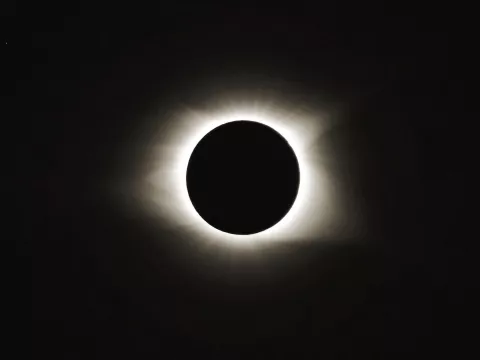- AdventHealth

You don't want to miss it, but you want to be safe. During the brief total phase of a solar eclipse, the moon entirely blocks the suns brightness. However, in Florida, the view of the eclipse will not be total, so it's important to know that the concentrated solar rays can enter your eye(s), causing serious injury. Without the suns complete brightness, you may not sense the damage that could be done.
In fact, the only way to look directly at the sun safely especially during the solar eclipse is through special-purpose solar filters, like eclipse glasses or solar viewers. According to NASA, homemade filters or regular sunglasses are not safe to look at the sun. As an alternative, a pinhole projection is a way to safely view the partially eclipsed sun.
Here are NASAs tips for viewing the solar eclipse safely:
- Use only certified eclipse glasses and handheld solar viewers that meet the ISO 12312-2 international standard for these products
- Inspect your solar filter before use and discard them if scratched or damaged Use the filters as instructed on the package
- Supervise children using solar filters Before looking at the sun, cover your eyes with the eclipse glasses or solar viewer and stand still
- Turn away from the sun before removing your filters
- It is not safe to look at the uneclipsed or partially eclipsed sun through an unfiltered camera, telescope, binoculars, or another optical device
- Do not look at the sun through a camera, a telescope, binoculars, or any other optical device while using your eclipse glasses or hand-held solar viewer
- Do not look through a camera, a telescope, binoculars, or any other optical device while using eclipse glasses or hand-held solar viewer the suns rays can damage the viewer's filter and your eyes
- Because in Florida the eclipse will be partial, eye protection is important to wear throughout the entire eclipse time window
For more information about solar eclipse safety, please visit NASAs How to View the 2017 Solar Eclipse Safely.



